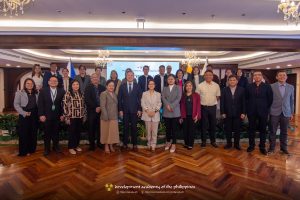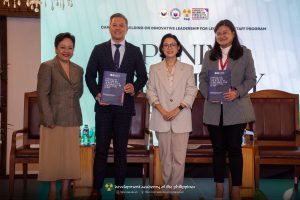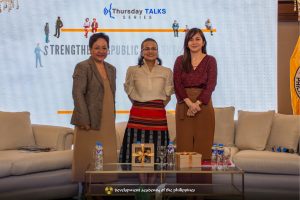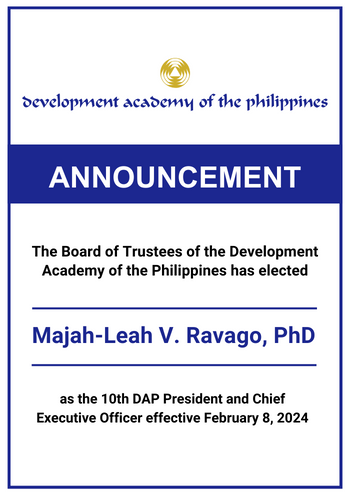
Quezon City, Philippines – Some 126 scholars, comprised of both new participants and returnees from the Senate and House of Representatives, embarked on their journey under the 2024 Capability Building on Innovative Leadership for Legislative Staff (CBILLS) program on April 4, 2024. This initiative, spearheaded by the Development Academy of the Philippines (DAP) in collaboration with the Philippine Congress, aims to empower legislative personnel with advanced management, leadership, and technical proficiencies, thereby enhancing their ability to provide effective support to the legislative process.
Dr. Majah-Leah Ravago, DAP president and chief executive officer, expressed her appreciation to the scholars and the Philippine Congress for their unwavering commitment and active engagement, marking a significant milestone as the program enters its seventh year. Dr. Ravago reaffirmed the DAP’s dedication to fostering human capital development and pledged intensified efforts in crafting responsive, efficient, and impactful capacity-building initiatives. With a strategic alignment with the National Economic Development Authority (NEDA), these endeavors are poised to make substantial contributions to the national agenda and the overarching goals of socioeconomic progress.

The strategic collaboration between the DAP and NEDA, aimed at fortifying the nation’s development trajectory, was underscored by the remarks of NEDA Secretary Arsenio Balisacan. Secretary Balisacan emphasized the paramount importance of participatory governance, citing CBILLS as a pivotal platform for deepening insights into policy formulation and enhancing public sector leadership. He urged civil servants to discharge their duties with utmost diligence and compassion, recognizing the profound impact of their decisions on the lives of every Filipino citizen.

The ceremony was followed by the first session of the Thursday Talks series, dedicated to exploring themes of public accountability and participatory governance. Atty. Reverie Pure Sapaen, NEDA director, led a discussion on fortifying public accountability and participatory governance within the Philippine context. Meanwhile, Dr. Maria Ela Atienza, Professor of Political Science at the University of the Philippines-Diliman, provided valuable insights into the evolving global democratic landscape and its implications for Philippine political institutions.




